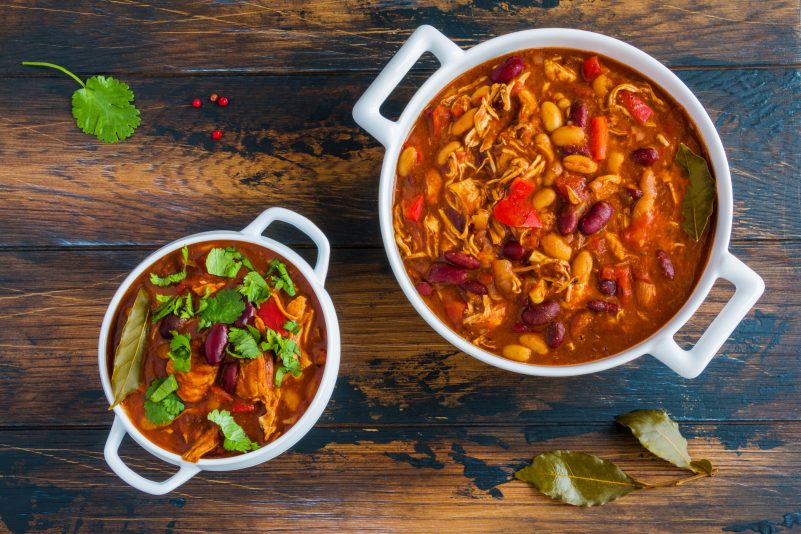Understanding The Different Types of Influenza
There are four main types of influenza, but Influenza A and B are the most concerning for humans:
✔️ Influenza A – The most severe and capable of causing pandemics. Strains like H1N1 and H3N2 have led to major outbreaks.
✔️ Influenza B – Also responsible for seasonal flu, but does not cause pandemics.
✔️ Influenza C – Causes mild respiratory illness and is not a major health concern.
✔️ Influenza D – Primarily affects cattle and is not known to infect humans.
🔹 Dr. Colbert’s Take: The immune system is your best defense against any strain of the flu. He recommends boosting immunity naturally with a healthy diet, proper rest, hydration, and strategic supplementation.
Why the Flu Changes Every Year
You may have heard that the flu is “different every year.” This is because of:
 ✔️ Antigenic drift – Small genetic mutations in the flu virus that cause new variants to appear each year. This is why flu vaccines need to be updated annually.
✔️ Antigenic drift – Small genetic mutations in the flu virus that cause new variants to appear each year. This is why flu vaccines need to be updated annually.
✔️ Antigenic shift – A major, sudden change in the virus that can lead to a pandemic.
🔹 Dr. Colbert’s Take: Instead of relying solely on yearly flu shots, he suggests strengthening your body’s natural defenses with Vitamin D, zinc, and probiotics, which play a crucial role in immune function.
What Makes Some Flu Strains Worse Than Others?
Not all flu viruses are created equal. Some are far more severe due to:
 ✔️ Mutations – Some strains mutate in ways that make them more aggressive.
✔️ Mutations – Some strains mutate in ways that make them more aggressive.
✔️ Immune response – Certain flu types trigger an intense immune reaction, leading to high fever, inflammation, and respiratory distress.
✔️ Lack of immunity – If a strain is new, most people have little to no immunity, allowing it to spread rapidly.
🔹 Dr. Colbert’s Take: A weak immune system increases the risk of complications. He recommends cutting back on sugar and processed foods, as they can suppress immune function for hours after consumption.
How Contagious Is the Flu?
The flu spreads easily through:
 ✔️ Respiratory droplets – Coughing, sneezing, and talking can spread the virus up to six feet.
✔️ Respiratory droplets – Coughing, sneezing, and talking can spread the virus up to six feet.
✔️ Touching contaminated surfaces – The virus can survive for hours to days on objects.
✔️ Before symptoms appear – You can be contagious one day before symptoms start and up to seven days after.
🔹 Dr. Colbert’s Take: Avoid crowded places during flu season, and wash your hands frequently. He also recommends using natural antimicrobials like oregano oil and elderberry to help fight off viral invaders.
How Long Does the Flu Virus Last on Surfaces?
The flu virus can survive for different lengths of time depending on the surface:
✔️ Hard surfaces (doorknobs, light switches, countertops) – Up to 24–48 hours
✔️ Soft surfaces (clothing, fabric, tissues) – A few hours
✔️ Hands and skin – Minutes to hours
🔹 Dr. Colbert’s Take: Regularly disinfect surfaces in your home using natural antiviral agents like vinegar, hydrogen peroxide, and essential oils such as tea tree and eucalyptus.
How Do Most People Catch the Flu?
The most common ways people get the flu include:
✔️ Direct contact with infected individuals – Being around someone who is sneezing or coughing.
✔️ Touching contaminated objects – Flu germs can linger on surfaces like shopping carts, door handles, and cell phones.
✔️ Poor hand hygiene – Touching your face (eyes, nose, mouth) after contact with contaminated objects.
🔹 Dr. Colbert’s Take: One of the simplest yet most effective flu prevention strategies is washing your hands often and keeping your immune system strong with nutrient-dense foods.
What to Do When a Family Member Gets the Flu
If someone in your home gets sick, take these steps to protect the rest of the family:

✔️ Isolate the sick person – Have them stay in a separate room if possible.
✔️ Use separate utensils and towels – Prevent cross-contamination.
✔️ Disinfect frequently touched areas – Doorknobs, remote controls, and countertops.
✔️ Encourage hydration and rest – Proper fluids and sleep help the body recover faster.
✔️ Wear a mask – If caring for a sick family member, a mask can help reduce exposure.
🔹 Dr. Colbert’s Take: Supporting the body’s natural recovery process is crucial. He recommends bone broth, herbal teas, and immune-boosting supplements like quercetin and vitamin C to speed up recovery.
Conventional Approaches: Flu Shots and Antivirals
While many doctors recommend annual flu shots, Dr. Colbert believes they are not a one-size-fits-all solution. If you choose the flu shot, ensure it is thimerosal-free to avoid mercury-based preservatives.
Tamiflu (oseltamivir) is commonly prescribed to shorten flu duration but may cause side effects such as nausea and dizziness. Dr. Colbert encourages natural antiviral and immune-boosting strategies before resorting to medication.
6 Integrative and Natural Strategies to Strengthen the Immune System
1. Essential Vitamins
- Vitamin D3: Supports immune function; recommended dosage: 5,000 IU daily.
- Vitamin C: An antioxidant that combats oxidative stress; take 1,000-2,000 mg daily.
- Zinc: Antiviral properties that reduce flu symptoms; recommended intake: 25-50 mg daily.
2. Herbal and Natural Remedies
- Echinacea: Boosts immune response.
- Oregano Oil: A natural antimicrobial.
- Garlic: A potent antiviral that strengthens immunity.
3. Probiotics for Gut Health
A strong immune system starts with gut health. Probiotics balance gut bacteria and enhance immunity. Consume fermented foods or take a high-quality probiotic supplement.
Diet and Nutrition for Flu Prevention
Diet plays a crucial role in immune support. Certain foods strengthen immunity, while others compromise it.
4. Foods to Avoid
- Refined Sugars: Weakens white blood cells, making infections more likely.
- Hydrogenated Fats: Increase inflammation and slow immune response.
- Excess Alcohol: Depletes immune-boosting nutrients like vitamin C and zinc.
5. Foods to Include
- Leafy Greens: Rich in vitamins and antioxidants for immune defense.
- Citrus Fruits: High in vitamin C, aiding in flu symptom reduction.
- Garlic and Onions: Contain natural antiviral and antimicrobial properties.
- Bone Broth: Supports gut health and provides key immune-enhancing amino acids.
- Green Supremefood: A nutrient-dense blend of greens, probiotics, and antioxidants for enhanced immunity.
6. Superfood Supplements for Immune Support
- Green Supremefood: Antioxidants, probiotics, and nutrients to fortify immunity.
- Immune Support Supplement: A blend of quercetin, zinc, and elderberry, vitamin c and vitamin d3.
- Nano-Glutathione: A powerful antioxidant for detoxification and immune resilience.
Final Thoughts
Instead of solely relying on flu shots and medications, strengthening your immune system naturally can make the difference in preparing your body’s natural defenses to ward off the flu. With nutrient-rich foods, strategic supplementation, and healthy lifestyle habits, you can defend and recover from the flu effectively.
By taking an integrative approach, you can restore, rebuild, and renew your body’s defenses. After all, God designed our immune system with incredible capabilities—let’s support it the right way!


















